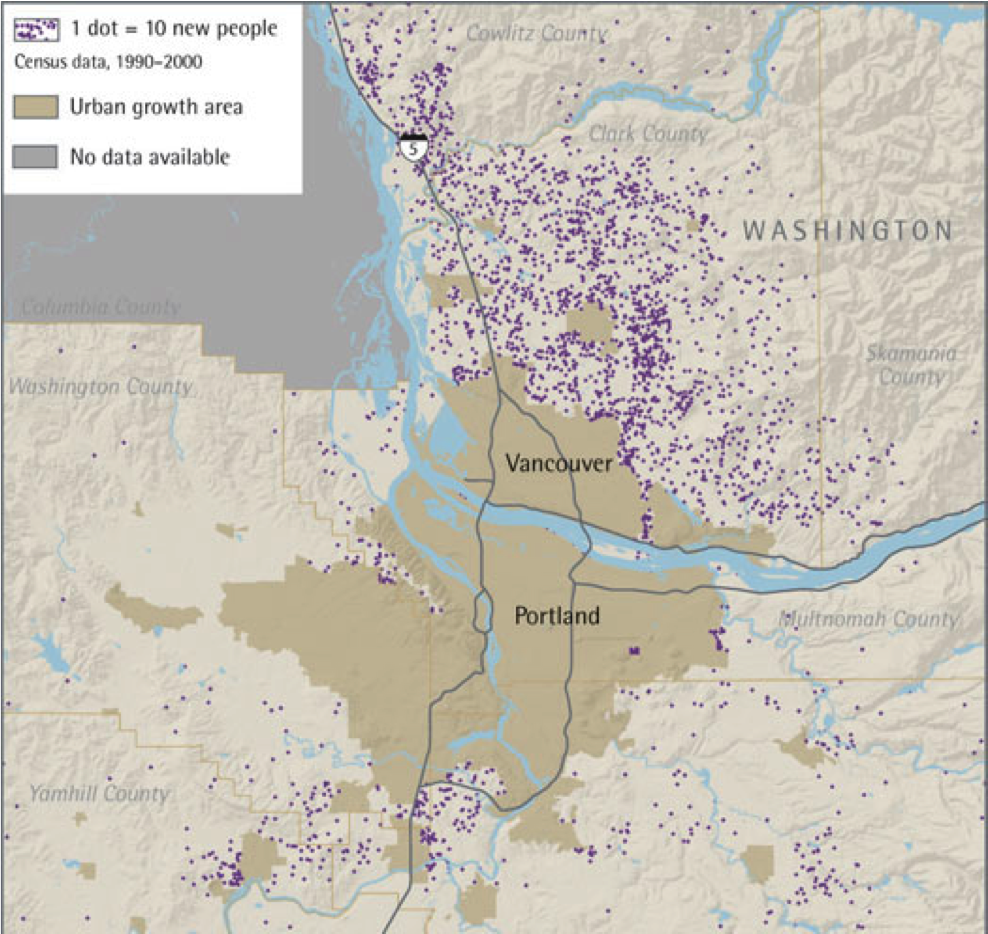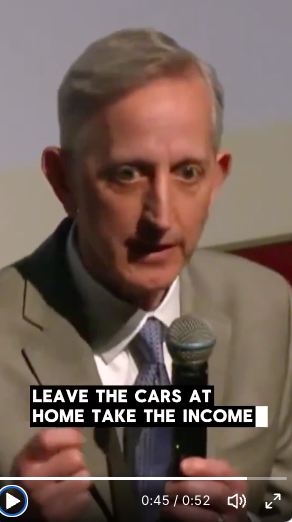What City Observatory did this week
How sprawl and tax evasion are driving demands for wider freeways. The Oregon and Washington Departments of Transportation are proposing to spend roughly $5 billion to widen a 5 mile stretch of I-5 between Portland and Vancouver. The case for the widening is based on the need to accomodate a supposedly inexorable increase in traffic. But a closer look at traffic demand shows that car travel between Vancouver and Portland has been fueled by exurban sprawl in Southwest Washington, as well as massive sales tax evasion by Washington residents. Some 93 percent of expected growth in peak hour traffic to Oregon is expected to come from new development at Vancouver’s urban fringe.
And roughly 10 to 20 percent of all car trips across the Columbia River are Washington residents shopping in Oregon, who save roughly $120 million annually by avoiding Washington’s 8 percent sales tax in tax-free Oregon.
Still NIMBY in Minneapolis. Minneapolis famously gained national notoriety for its path-breaking rules to allow duplex and triplex houses in most of the city’s single family zones. That’s real progress, but much of the zoning deck is still stacked in favor of NIMBY interests. A good example is related by MinnPost’s Bill Lindeke, who tells of local resident Cody Fischer’s plans to build an four story, 26 unit apartment building on an inner city lot. The developer is keenly attuned to urban interests, with plans to for passive, low-energy construction, deluxe bike storage on a site adjacent to good transit service. It’s exactly the kind of urban density called for in the city’s 2040 plan which passed the City Council on a 12-1 vote three years ago. But construction of xxxx’s building is still subject to approval by the planning commission, which after hearing local objections about parking, shadows and a lack of neighborhood character, voted against approving the project 6-3. The local city councilor made the motion to decline the project, saying it was “just not a good project” and that Fischer hadn’t been “neighborly.” The case is a reminder that city plans are of little value if they don’t guide the decisions to actually build things. And in cities with ward or district systems for electing city councilors, it may be easy to get agreement on sweeping generalities at a municipal level, and practically impossible to get permission to move ahead with a specific development when irate neighbors show up at city hall and button-hole “their” council member.
The high cost of parking requirements in Los Angeles. Writing in the Los Angeles Daily News, Shane Phillips lays out the case against parking requirements. Los Angeles, he says, allocates ten times the area of Manhattan to car storage, with profound effects on urban form, transportation costs and equity. Much of this is a product of the city’s zoning code, which requires new commercial and residential development to set aside vast amounts of otherwise productive land for car storage. As Philip explains, the overallocation of land to parking comes with a range of detrimental effects:
This massive parking supply feeds our car dependency, and it contributes to the same destructive consequences: environmental degradation and greenhouse gas emissions; long commutes; poor health; dangerous streets; car-oriented architecture; financial burdens for those who own a car; and limited mobility for those who don’t, or can’t.
The hopeful message here is that simply repealing parking mandates can go a long way to addressing this problem. San Diego repealed many of its parking requirements, with the result that developers stepped up and built more housing, which helps ease supply shortages.
Climate Kids v. Biden. President Joe Biden visited Portland to tout his infrastructure plans, and local youth climate activists had a message for him: Climate leaders don’t widen freeways. Taylor Griggs writing at Bike Portland described the activists preparations for the presidential visit. Their position:
“Youth activists will make our message clear yet again: Climate leaders don’t widen freeways. Biden must choose which side he’s on – futures, or freeways. Because he cannot be on both.”
There’s little question that the nation’s infrastructure can use repair and refurbishment. But as these climate advocates argue, this shouldn’t be an excuse for building vast new roadways that simply encourage more sprawl, car dependence and carbon emissions.



